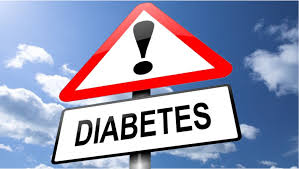
Sign of Diabetes You Shouldn't Ignore
Diabetes can be a demanding condition to deal with. Type two diabetes is a chronic condition that affects the way the body processes blood sugar, also known as glucose. While type one diabetes is often diagnosed at a younger age, type two is usually a result of a person’s lifestyle later in life. The six major risk factors are: family history, poor diet, physical inactivity, older age, excess weight around the waist, and certain ethnicities. Oftentimes, a patient can reverse their diagnosis by altering their eating and exercise habits, but the trick is to know what symptoms to look out for in the first place. Here are six symptoms to be aware of.

Thirst and more frequent urination. If you find that it’s taking more liquid than normal to quench your thirst and you are making trips to the bathroom more than before, it could be a sign that you have diabetes. On average, a person urinates between four and seven times in 24 hours, but those with diabetes may go a lot more. The reason for this is that your body normally reabsorbs glucose as it goes through your kidneys. When someone has diabetes the blood sugar gets pushed up and the kidneys don’t always bring it all back in. This ends up causing the body to make more urine, taking up more fluids. Because your body is urinating so often, it naturally wants more water, causing a thirst that never seems to be satisfied.
Fatigue and hunger. Your body turns the food you eat into glucose which your cells use for energy. Those cells require insulin to bring glucose in and because a diabetic person doesn’t make enough insulin for the glucose to absorb, you end up being more hungry and tired.
Blurry vision. Anytime the fluid levels in your body change, your eye lenses tend to swell up. This causes them to change shape and leads to a loss of the ability to focus.
Itchy skin and dry mouth. All those precious fluids that your body needs to function, are being used to make urine, which leads to a loss of moisture in other areas. It causes dehydration which leads to dry mouth and dry skin will likely be itchy.
Cuts and sores that take a long time to heal. The rate of blood flow is affected when you have high blood sugars. This leads to nerve damage that makes it more difficult for your body to heal wounds.
A rise in yeast infections. Because yeast feeds on glucose, a person with diabetes is particularly susceptible to yeast infections in the warm, moist areas of their skin.
Ready to make a change in your life? Let's talk CLICK HERE

